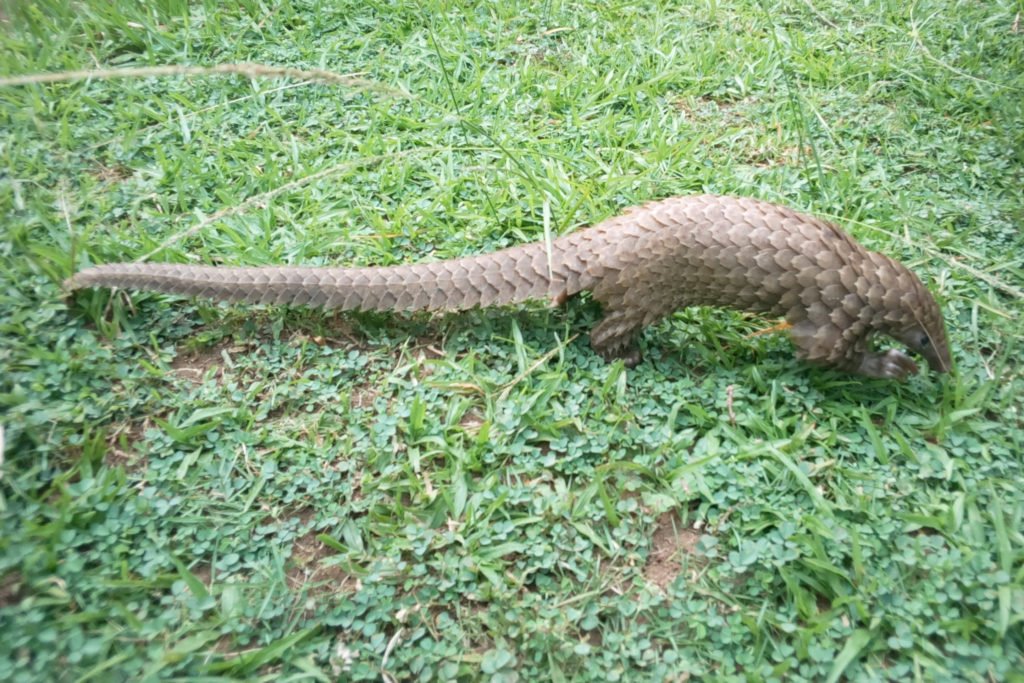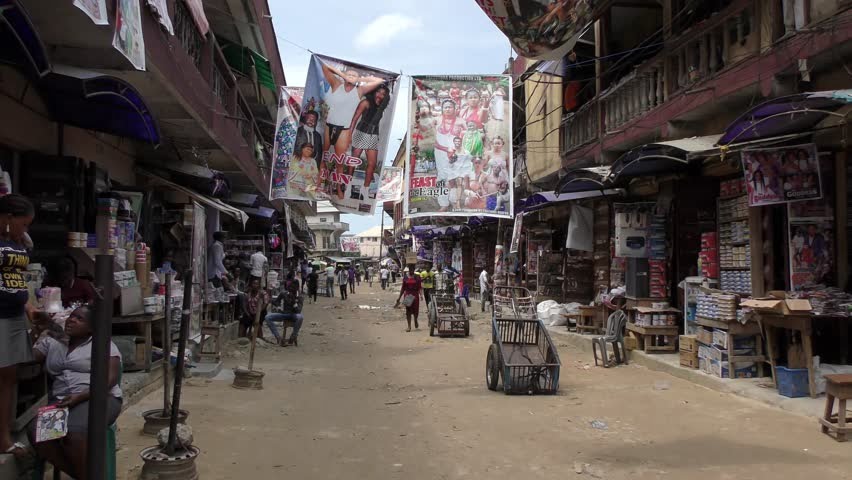The Nigeria Customs Service (NCS) says that more than 900 million dollars’ worth of Pangolin for illicit trading were seized in Nigeria in 2018.
Asst. Comptroller Mutalib Sule of the NCS, Federal Operations Unit, Zone A, Ikeja, Lagos, made the disclosure at an event to mark the 2019 World Pangolin Day on Wednesday in Lagos.
The event which was organised by the Nigerian Conservation Foundation, Lekki, Lagos, in collaboration with the Pangolin Conservation Guild of Nigeria had the theme: “Pangolins and Politics’’.
The News Agency of Nigeria reports that the Pangolin is a harmless African and Asian Mammal with body covered with horny overlapping scales: it has small head with an elongated snout.
It has a long sticky tongue for catching ants and termites and a tapering tail; it also has large protective keratin scales covering the skin; they are the only known mammals with this feature.
Asst. Comptroller-General Mutalib Sule of the Nigeria Customs service delivering a paper/session on “History of Confiscation, Current Challenges and Opportunities in Combating Pangolin Trafficking in Nigeria’’, during the 2019 World Pangolin Day event by the Nigerian Conservation Foundation, Lekki, Lagos and Pangolin Conservation Guild Nigeria. (NAN Feb. 13, 2019)
“The summary of Pangolin seizure by the FOU Zone A under my superintendent in the year 2018 is 14,833 metric tonnes.
“My study across the world revealed that this is the highest seizure of Pangolin in the world.
“Japan came a distant second having made a seizure of 7.100kg of Pangolin in the same year with the estimated value of 450, 000 dollars.
“Going by this, Nigeria’s seizure under my watch cannot be less than 900,000,000 million dollars or even more,’’ Sule said.
The assistant comptroller-general of NCS said that people engaged in illicit trade of Pangolins because of the benefits.
“Roasted pangolin scales are believed to cure cancer, relieve palsy and even stimulate breast milk.
“Pangolins are hunted for food, for use in traditional medicines and as fashion accessories; it is considered a delicacy in China, Vietnam and other parts of South East Asia.
“The scales are prized 3,000 dollars per kilogram, while the meat is 300 dollars per kilogram; live pangolin attracts 1,000 dollars based on current black market prize, a kilogramme of pangolin is sold at 15,000 dollars.
“The mouth-watering price of the illicit trade largely accounted for the business to boom and attract international attention; about 10,000 Pangolins are poached every year.’’
According to Sule, the NCS has been working hard to curtail this act.
“On Feb. 12, 2018, the FOU patrol team led by my humble self went to a building located along Allen Avenue and confiscated 54 sacks of pangolin scale and 218 pieces of elephant tusks.
“The Pangolin weighed 2001kg, while the elephant gave us 343kg; a Chinese citizen was apprehended in connection with it and taken to court by customs for prosecution.
“On March 3, another Chinese was arrested at a location off Toyin Street; 329 sacks of pangolin was discovered and evacuated; the sacks gave us 8.492 metric tonnes.
“A second visit there gave us 78 sacks of pangolin of 1,771 metric tonnes; also on July 22, 2018, around Lekki area of Lagos, 21 sacks of pangolin and 4 pieces of elephant tusks were found stashed in a shop.
“On Aug. 11 of the same year, we swooped on the den of some Chinese nationals suspected to be engaging in the illicit trade; 10 sacks of pangolin were found and evacuated; these gave us give us 738 metric tonnes,’’ he said.
He noted the need stop the poaching and trading of Pangolins because it will affect the ecosystem and make the animals go into extinction, especially as it is a rare species of mammal.
Sule also highlighted that some of the challenges that the NCS face in its mission to seize and arrest culpable individuals in connection with this highly profitable illicit trade of pangolins.
According to the assistant comptroller general, the challenges include dangerous terrains while making arrests, resistance, attacks, poor reward system and lack of enforcement of laws against trafficking as well as the judicial system.
-NAN-






2 Comments